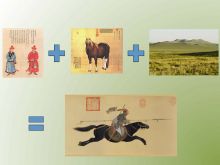Shifting Virtue Towards a Sustainable Qing
David Bello - Associate Professor of History, Director of East Asian Studies, Washington and Lee University
Wednesday, February 19, 2014 - 12:00pm to 1:30pm
Room 401, Hall of Graduate Studies
320 York Street
New Haven, CT
06511
The multicultural Qing is reconsidered in “multi-ecological” terms of three borderland case studies from northeastern Manchuria, south-central Inner Mongolia and southwestern Yunnan. Human pursuit of game, tending of livestock and susceptibility to disease vectors required imperial adaptation beyond the cultural constructs of banners or chieftainships to maintain a “sustainable Qing periphery” based on these environmental relations between people and animals. The resulting borderland spaces are, therefore, not simply contrivances of more anthropocentric administrative fiat, but environmental interdependencies constructed through more “organic” and conditional relations of imperial foraging, imperial pastoralism and imperial indigenism.
Co-sponsored by the Environmental History at Yale Program
Region:
China

